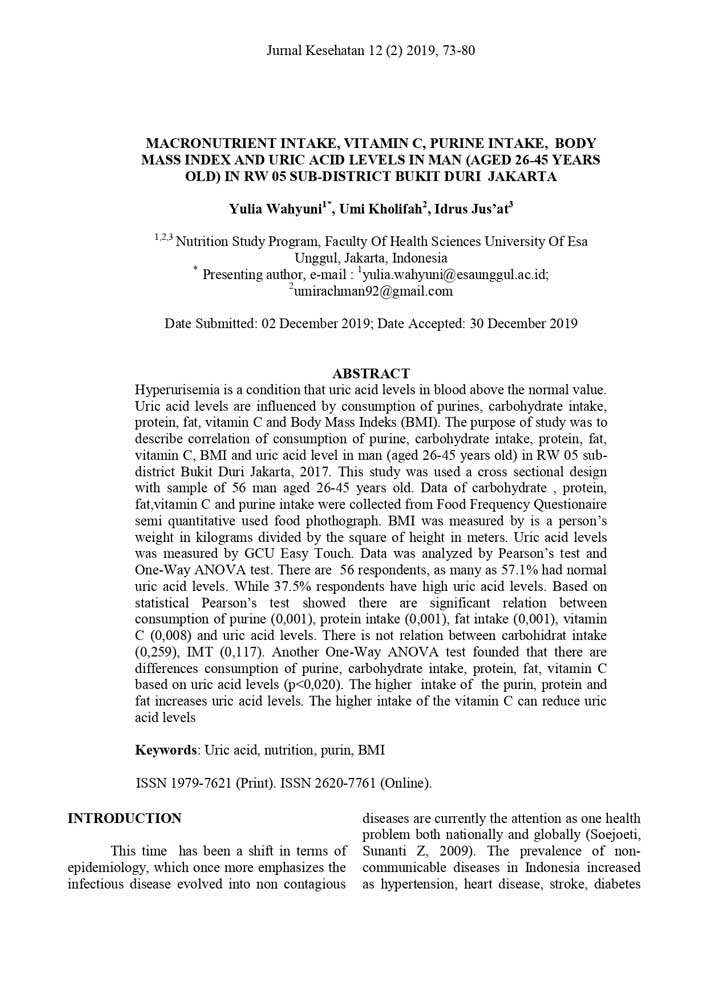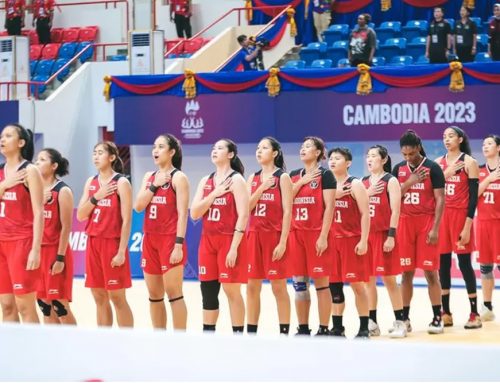
Deskripsi :
Hyperurisemia is a condition that uric acid levels in blood above the normal value. Uric acid levels are influenced by consumption of purines, carbohydrate intake, protein, fat, vitamin C and Body Mass Indeks (BMI). The purpose of study was to describe correlation of consumption of purine, carbohydrate intake, protein, fat, vitamin C, BMI and uric acid level in man (aged 26-45 years old) in RW 05 subdistrict Bukit Duri Jakarta, 2017. This study was used a cross sectional design with sample of 56 man aged 26-45 years old. Data of carbohydrate , protein, fat,vitamin C and purine intake were collected from Food Frequency Questionaire semi quantitative used food phothograph. BMI was measured by is a persons weight in kilograms divided by the square of height in meters. Uric acid levels was measured by GCU Easy Touch. Data was analyzed by Pearsons test and One-Way ANOVA test. There are 56 respondents, as many as 57.1% had normal uric acid levels. While 37.5% respondents have high uric acid levels. Based on statistical Pearsons test showed there are significant relation between consumption of purine (0,001), protein intake (0,001), fat intake (0,001), vitamin C (0,008) and uric acid levels. There is not relation between carbohidrat intake (0,259), IMT (0,117). Another One-Way ANOVA test founded that there are differences consumption of purine, carbohydrate intake, protein, fat, vitamin C based on uric acid levels (p<0,020). The higher intake of the purin, protein and fat increases uric acid levels. The higher intake of the vitamin C can reduce uric acid levels.
Universitas Esa Unggul
Penulis :
- Yulia Wahyuni
- Umi Kholifah
- Idrus Jusat
Download :




